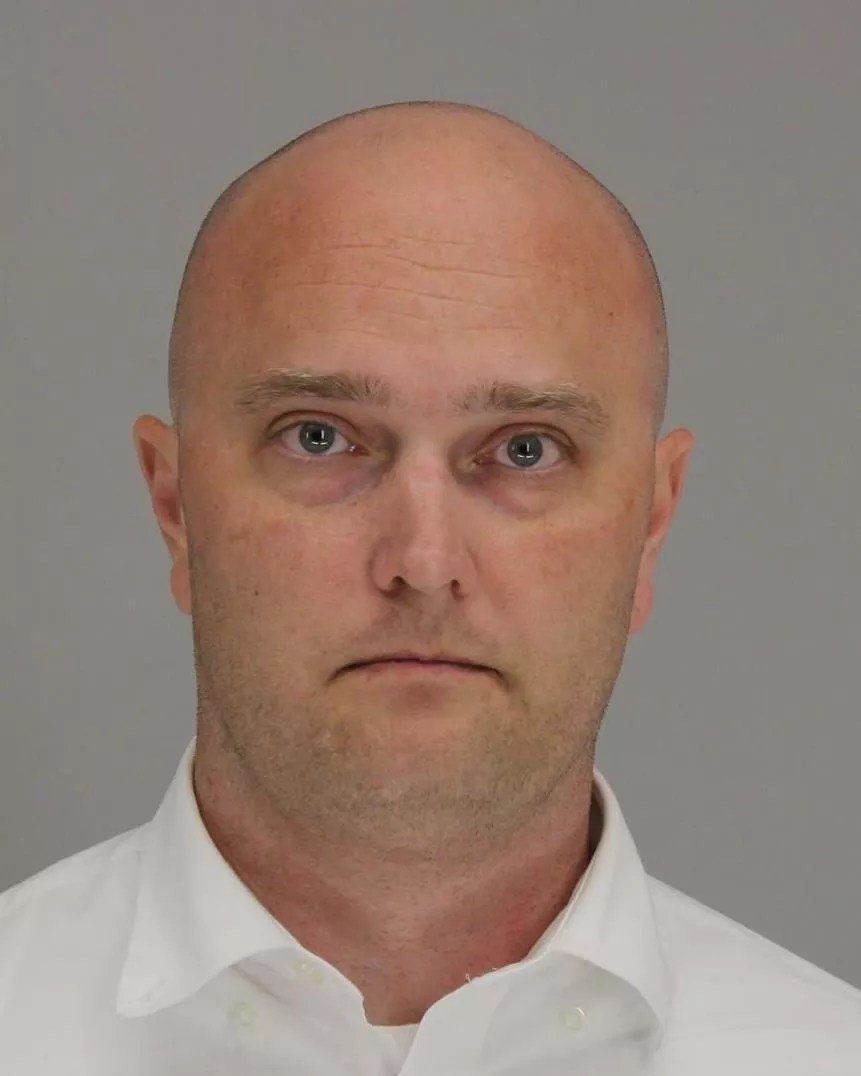
Dallas County Jail

Audio By Carbonatix
Nearly five years to the day of Jordan Edwards’ murder at the hands of a Balch Springs police officer, a federal court has ruled the family can sue for damages.
Edwards, a Black 15-year-old boy, was shot in the back of the head by former Balch Springs police officer Roy Oliver, a white man.
The Dallas Morning News reported on the federal court decision first late Tuesday.
Oliver and other officers were responding to a noise complaint about a house party in April 2017. They heard gunfire while there, and Oliver grabbed his rifle out of his patrol car. Around the same time, Edwards, his brothers and two friends were getting in their car to leave. Edwards’ brother, Vidal Allen, was driving the car. Another officer, Tyler Gross, told Allen to stop as the car was pulling away. That’s when Oliver ran toward the car and shot five times, killing Edwards. The car was free of weapons, drugs and alcohol, as was the party house.
The Balch Springs Police Department fired Oliver the following month. In August 2018, he was found guilty of murdering Edwards and sentenced to 15 years in prison and a $10,000 fine. Oliver’s lawyers appealed, but his sentence was upheld in in 2020.
The Edwards family sued Oliver and the city of Balch Springs in 2017. In February, a federal district court judge dropped the city from the lawsuit, but Oliver wasn’t so lucky. He and his lawyers argued that qualified immunity should shield him from the lawsuit. In a 17-page opinion published this week, a panel of judges with the 5th U.S. Circuit Court of Appeals said they disagreed. Qualified immunity is a controversial legal doctrine that broadly shields government employees from liability for violating a person’s constitutional rights.
Oliver’s attorney, William Krueger, declined to comment on the record. But in court filings, Krueger referenced other similar cases as reasons for why Oliver should be granted qualified immunity.
Daryl Washington, a local civil rights attorney hired by the Edwards family, told the Observer they were happy with the decision. They’re not so happy with the city of Balch Springs.
“I will tell you, we are thoroughly disappointed with the city of Balch Springs and the way they’ve treated this family,” Washington said. This is why they appealed the courts decision to drop the city from the lawsuit.
Washington, as he’s argued in court filings, believes the city is partially to blame. For example, the city could provide better training. The city could have refused to hire Oliver, and it would have been justified in doing so, Washington argues.
“There were a number of things that supported our belief that the city of Balch Springs should have never hired Roy Oliver in the first place.” – Daryl Washington, attorney
“There were a number of things that supported our belief that the city of Balch Springs should have never hired Roy Oliver in the first place,” Washington added.
For example, Oliver applied for jobs at several police departments in 2011. When the Balch Springs Police Department gave him a psychological test, it found he had an “elevated score” on the “risk-taking index.”
As reported by Texas Monthly, the test examiner said Oliver “may feel so insensitive to threat that his judgment may be impaired in evaluating the risk of danger. … His sense of entitlement may be so strong that the possibility of his behaving in an antisocial manner must be considered.”
But the city’s police department hired Oliver anyway. Oliver also faced charges stemming from an accusation that he brandished his gun at two women two weeks before he killed Edwards. Those charges were dismissed.
A recent ruling by a federal appeals court said that Dallas Police involved in the death of Tony Timpa weren’t shielded by qualified immunity. Timpa was killed in Dallas police custody after he called them for help, saying he was frightened, off his medication and suffering from mental illness.
In that decision, the court considered the logical similarities between the Timpa case and others cited in the lawsuit, instead of disregarding them because the circumstances weren’t exactly the same. It’s a potential chink in the armor of the qualified immunity defense.
“We have many cases this has potential application for,” Niles Illich, an attorney with the Dallas law firm Scott H. Palmer PC, told the Observer in December.
Now, another federal decision against the defense has come down, this time in Oliver’s case.
But Washington said, “It’s just as hard as it’s always been” to defend against qualified immunity. In a case as egregious as this one, Washington said the decision “shouldn’t even require five minutes of analysis.”
He said, “It makes no sense.”